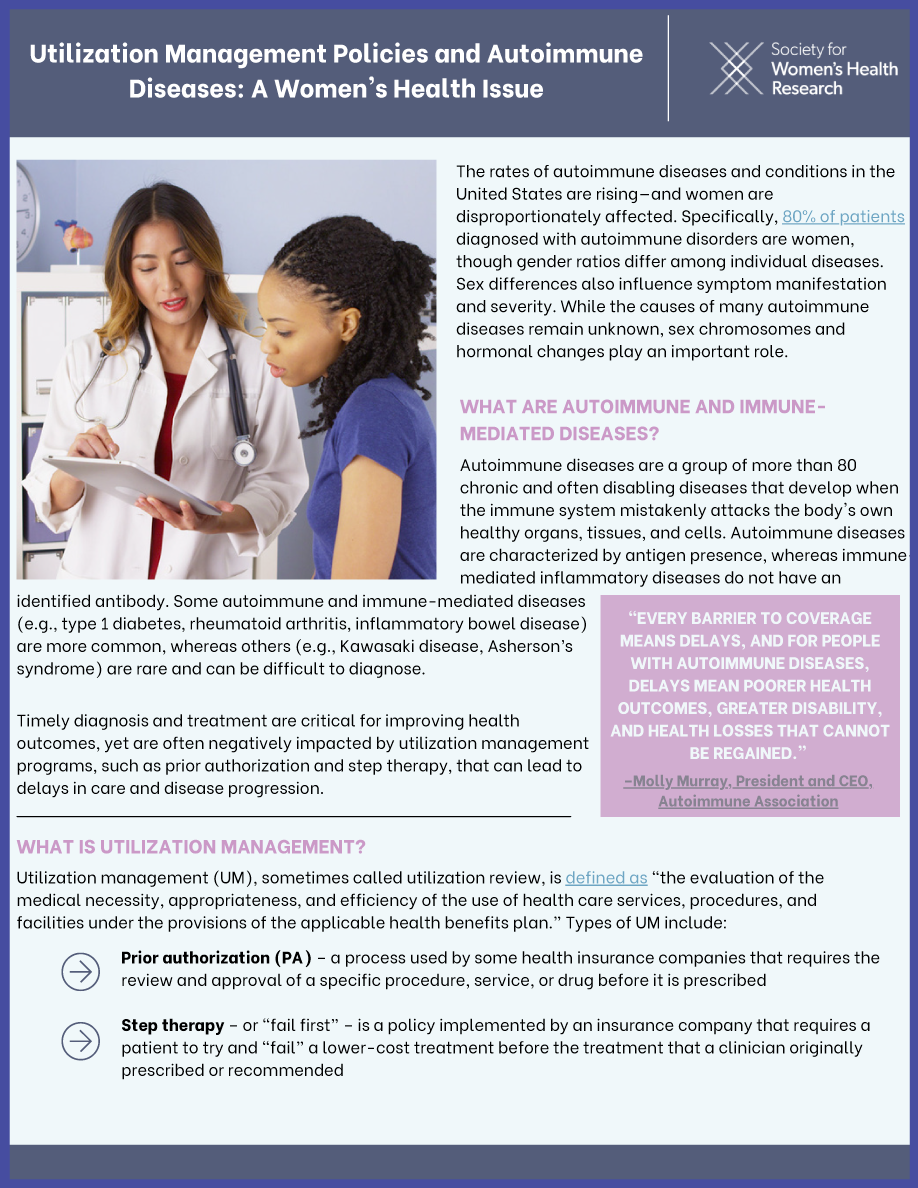Autoimmune diseases are a group of more than 80 chronic and often disabling diseases that develop when the immune system mistakenly attacks the body’s own healthy organs, tissues, and cells. The rates of autoimmune diseases and conditions in the United States are rising—and women are disproportionately affected. Specifically, 80% of patients diagnosed with autoimmune disorders are women, though gender ratios differ among individual diseases. Sex differences also influence symptom manifestation and severity. While the causes of many autoimmune diseases remain unknown, sex chromosomes and hormonal changes play an important role.
Generally, autoimmune diseases cannot be cured, so treatment focuses on managing symptoms and slowing the progression and negative impacts of the disease. Finding an effective treatment quickly is key for improving not only health outcomes but also quality of life. For patients – who experience different types and severity of symptoms, responses to treatments, and have different needs – delays in care can be devastating, resulting in disease progression and higher costs of time. Identifying the barriers to coverage and improving policies to better reflect patient needs could have a significant effect on health and quality of life outcomes.
The Society for Women’s Health Research (SWHR) is the nation’s thought leader in promoting research on biological sex differences in disease and improving women’s health through science, policy, and education. SWHR brings attention to diseases and conditions that exclusively affect women or that disproportionately or differently affect women. We have a 33-year history of bringing fresh thinking and thought leadership to improving women’s health and communicating knowledge to diverse stakeholders. Our science and policy roundtables and interdisciplinary networks have surveyed the current state of research in women’s health, examined research gaps, and published findings as peer-reviewed articles, patient and clinician toolkits, position statements, and other materials for diverse audiences.
SWHR convened an interdisciplinary Autoimmune Policy Working Group of policy experts, researchers, clinicians, and patient advocates for a closed, roundtable meeting on August 4, 2022. During the roundtable, the Working Group discussed policy needs and opportunities as they relate to women’s autoimmune and immune-mediated diseases and conditions across the lifespan.



